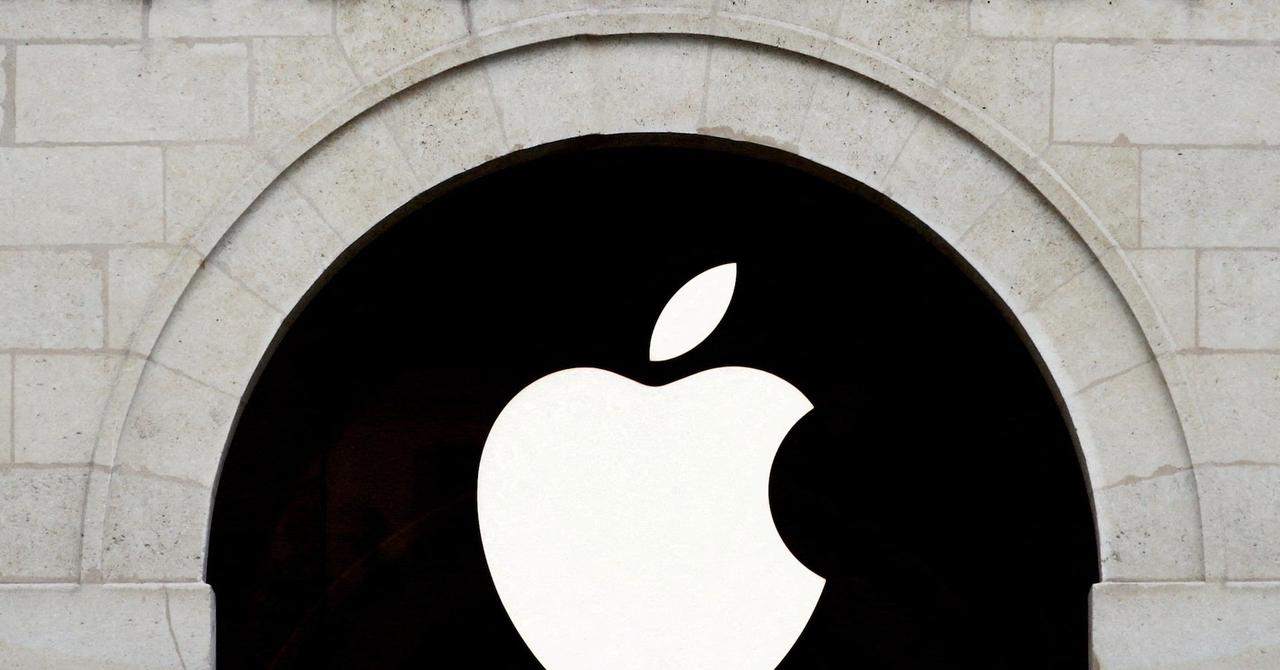Apple Faces Regulatory Hurdles for AI Launch in China, Considers Local Partnerships
7 Sources
7 Sources
[1]
China puts obstacles in the way of Apple Intelligence and the solution is unsurprising - Softonic
The arrival of Apple Intelligence is being gradual. While it is available in practically the entire world, except Europe and China, it is only in English. We have the confirmed date for the arrival of more languages, and also the date it will be launched in Europe, but in China, the situation is different. According to the Financial Times, a senior official from the Beijing government has made it clear that any attempt by Apple to launch its artificial intelligence in the country will be a "difficult and long" path without collaboration with local companies. A situation that, although complex, has a solution that follows a pattern we have already become accustomed to in China. According to current regulations, any foreign company that wants to operate with generative artificial intelligence models must go through an approval process. But here's the key: this process is much more "simple and straightforward" if it partners with a local company. In practice, this means that Apple would have to collaborate with Chinese tech companies to offer its tools in the country. We have seen similar situations before. In 2010, Google decided to leave China due to the restrictions and censorship it faced. And let's not forget that platforms like Facebook, Wikipedia, or X are still blocked by China's Great Firewall. China also wants to strictly regulate the use of generative artificial intelligence models, as they can act as search engines that gather real-time information. For Apple, this situation implies the need to adapt if it wants to avoid the same rejections that other companies have already experienced when trying to expand in the country. Apple has already proven to be more than capable of adapting to the particularities of each market without compromising its essence. In this case, according to J.P. Morgan analysts cited in the Financial Times, it is most likely that Apple will opt for a "flexible" approach. This would involve collaborating with local Chinese companies to comply with regulations and launching Apple Intelligence in a version adapted to the country's market. What is clear is that these adjustments can significantly delay the launch of Apple Intelligence in China. According to estimates, Apple's artificial intelligence would not be available in the country until the second half of 2025. Ultimately, the solution to the obstacles imposed by the Chinese government is not surprising: Apple will have to collaborate with local companies to comply with regulations. A concession, yes, but also a demonstration of how the company prioritizes the continuity of its presence in one of the largest markets in the world, without losing sight of its main mission to offer products that make a difference for everyone and to do so while safeguarding our privacy. The arrival of Apple Intelligence in China will be, as we are seeing, a long process full of challenges. But, as we have seen on previous occasions, if any company can successfully navigate situations like this, it is Apple.
[2]
Chinese iPhone users could wait longer for Apple Intelligence
Apple is grappling with regulatory hurdles as it seeks to launch Apple Intelligence in China. A Financial Times report highlights that the approval process for foreign AI technologies in the country is complex and lengthy unless companies partner with local entities. Apple aims to incorporate its AI features in devices sold in mainland China while adhering to local regulations. Tim Cook, Apple's CEO, recently made his third visit to China this year to attend a CEO summit with Chinese Premier Li Qiang. During his visit, he acknowledged the regulatory challenges Apple faces and expressed the company's commitment to navigating the intricate approval landscape. Apple has initiated discussions with Chinese tech giants such as Baidu, ByteDance, and the AI startup Moonshot to explore partnerships that could facilitate the deployment of Apple Intelligence features in the Chinese market. Chinese officials have indicated that leveraging pre-approved large language models (LLMs) from local firms would simplify the approval process for foreign companies. Apple has progressively rolled out Apple Intelligence features in the U.S. and other regions since October, utilizing a combination of on-device processing, its Private Cloud Compute servers, and OpenAI's ChatGPT for more advanced queries. However, the company may need to rely on Chinese partners' LLMs if it cannot secure approval for its own systems in China. According to JP Morgan analyst Samik Chatterjee, the uncertainty surrounding the regulatory framework could delay Apple Intelligence's introduction in China until at least the second half of 2025, unless the company successfully forges multiple partnerships with local firms to expedite the approval process. The stakes are high for Apple in the Chinese market, which accounted for 17% of its total revenue last year. However, the company faced an 8% decline in sales in the region amid growing competition from Huawei, which has already integrated its AI capabilities into newer smartphone models. Apple's attempt to launch AI models in China faces scrutiny from regulators who are wary of foreign technologies. A senior official from the Cyberspace Administration of China warned that foreign device makers must align with local entities to streamline approval processes or encounter significant delays. The recent World Internet Conference highlighted that all companies wanting to offer generative AI services in China must undergo rigorous official testing of their models. If Apple cannot deploy its AI solutions, it risks delivering a product that is heavily censored to align with the narratives permitted by the Chinese Communist Party.
[3]
Apple Intelligence Faces Complex Approval Process in China
Apple is experiencing challenges as it attempts to launch Apple Intelligence in China, with regulators cautioning that foreign companies face a "difficult and long process" for approval unless they partner with local firms, according to a new Financial Times report. A senior official at the Cyberspace Administration of China told the FT that foreign device makers would find a "simple and straightforward approval process" if they utilize already-approved large language models (LLMs) from Chinese companies, rather than attempting to implement their own AI systems. The regulatory situation has reportedly prompted Apple to engage in discussions with several Chinese tech companies, including search giant Baidu, ByteDance, and AI startup Moonshot, to potentially power Apple Intelligence features in devices sold in mainland China. Apple CEO Tim Cook arrived in China on Monday to attend a CEO summit with Chinese Premier Li Qiang, in what could be an attempt by Cook to personally navigate the complex regulatory landscape. During his previous visit to Beijing, Cook acknowledged the specific regulatory requirements, stating that Apple was "working hard" to bring Apple Intelligence to Chinese consumers. The company has been gradually rolling out Apple Intelligence features in the US and elsewhere since October, with things like Writing Tools and enhanced Siri using a combination of on-device processing and its Private Cloud Compute servers, along with OpenAI's ChatGPT for more complex queries. But if Apple can't secure approval for its own AI models in China, it may need to rely on Chinese partners' LLMs to host AI features on devices sold there. According to JP Morgan analyst Samik Chatterjee, the regulatory uncertainty could delay the launch of Apple Intelligence in China until "well into the second half of 2025" or later, unless Apple adopts a flexible approach involving multiple Chinese partnerships to expedite approval. China represents 17% of the company's revenue but saw an 8% decline in sales over the past year. The company faces increasing competition from Huawei, which has already integrated its own AI features into its latest smartphones.
[4]
China tries to exert control over Apple Intelligence launch there
A top government official has warned that an Apple Intelligence launch in China would be a "difficult and long process" unless the iPhone maker partners with a local AI company. Working with a Chinese company would instead be "simple and straightforward." Apple had reportedly been exploring using its own generative AI models in China, but a top regulator has strongly implied that this wouldn't be in the Cupertino company's best interests ... Any company wanting to launch a generative AI product in China needs approval from a regulator. The Financial Times reports that the regulator in question has just given a pretty clear indication on what the government expects. Apple is facing an uphill battle to release its own artificial intelligence models for iPhones and other products in China, with a top Beijing official warning that foreign companies will confront a "difficult and long process" to win approval unless they partner with local groups [...] The high-ranking official at the Cyberspace Administration of China said it would be a comparatively "simple and straightforward approval process" for foreign device makers to use already vetted LLMs (large language model, aka generative AI) from Chinese groups. Two sources cited by the FT said that Apple has been considering using its own LLMs in China, but has also been in talks with Chinese tech companies. The Chinese government exerts a tight stranglehold on sources of online information within the country. Google pulled out of the country after it was forced to censor search results, and many other western platforms are blocked by the Great Firewall of China, including Facebook, X, and Wikipedia. Many search terms are also blocked when using the locally-owned Baidu search engine. AI products of course provide another means of effectively carrying out web searches, and it's clear the government wants to be able to control these too, hence effectively forcing foreign companies to use approved Chinese-owned models. Apple has already seen iPhone sales in China plummet after the government banned their use by officials, and suggested it was unpatriotic for its citizens to buy a phone from a foreign-owned company. A JP Morgan analyst said that Apple would probably take a "flexible" approach in order to get approval, but even so the Apple Intelligence launch in China would likely be pushed into the second half of 2025. The FT said that Apple declined to comment on the report. While it would be nice to imagine Apple would resist this pressure, the reality is that it will inevitably acquiesce. China is simply too important to the company, not just because it accounts for 17% of Apple's global sales, but because it remains the Cupertino company's most important manufacturing center. As CEO Tim Cook said only yesterday: "We could not do what we do without them [Chinese suppliers]." In many cases, Apple has been forced to do unsavoury things like remove VPN apps and US news apps from the App Store in order to comply with the law. In this case, it could in theory simply decide not to launch Apple Intelligence in China, but the commercial and political risks are likely too high to make this feasible.
[5]
Apple faces 'difficult' process to launch its own AI in China
Apple is facing an uphill battle to release its own artificial intelligence models in China, with a top Beijing official warning that foreign companies will confront a "difficult and long process" to win approval unless they partner with local groups. Apple chief Tim Cook arrived in China on Monday for his third visit of the year as the company tries to navigate the country's complex regulatory regime and bring its Apple Intelligence to devices sold in the country. In recent months, the iPhone maker has been holding talks with Chinese tech companies to help power Apple Intelligence in the country. It has been gradually rolling out the suite of AI features in the US since October. Apple has also considered running its own large language models in China, according to two people familiar with the matter. But a top Chinese tech regulator told the Financial Times that foreign groups like Apple would face a lengthy and complex approval process to run their own models and indicated partnering with locals was their best option. The high-ranking official at the Cyberspace Administration of China said it would be a comparatively "simple and straightforward approval process" for foreign device makers to use already vetted LLMs from Chinese groups. The Chinese official was speaking on the sidelines of the World Internet Conference held in Wuzhen, west of Shanghai, last week. All companies seeking to offer generative AI services to the public must go through an approval process that typically involves official testing of their LLMs. Apple declined to comment. The US tech group has been working to reinvent itself around AI this year, betting that consumers will upgrade their devices to access new features that will not work on older models of the iPhone. Apple's sales in China have faltered amid a top-down campaign to cut iPhone usage among Chinese state employees and a nationalist backlash over thorny US-China relations. The return of national champion Huawei, which has already integrated its generative AI offerings into its latest devices, poses another threat. In the US, Apple's own models power features such as Siri, writing aids, photo editing, and custom emoji generation, using a mixture of on-device processing and Apple's cloud servers. The company has tapped OpenAI's much larger models to handle more complex queries. If Apple cannot use its own models in China, it would leave it relying on LLMs from Chinese partners to power all generative AI features in phones sold on the mainland. Apple's AI tie-up talks have included discussions with search giant Baidu, according to three people familiar with the matter. One of the people added that Apple had also spoken to tech group ByteDance and Moonshot, the start-up behind the Kimi AI chatbot. China is Apple's most important market outside the US, contributing 17 per cent of revenue in the year ending in September. But sales in the country were down 8 per cent from the prior year. When Cook visited Beijing last month, he told local media the company was "working hard" on Apple Intelligence's China debut. "There is a very specific regulatory process behind this, and we need to complete this process," he said. "We also hope to bring it to Chinese consumers as soon as possible." JPMorgan analyst Samik Chatterjee said "the China regulatory process remains a bit more opaque to Apple and other international companies". Apple would probably take a "flexible" approach, pursuing partnerships with Baidu as well as other smaller companies in China, putting them in a "better position to get approval", he said. Still, the uncertainty over the regulatory process "is likely to push the timeline of the rollout of Apple Intelligence [in China] well into the second half of 2025" or beyond, Chatterjee said.
[6]
Apple AI Launch Faces 'Difficult and Long Process' in China | PYMNTS.com
Apple is reportedly facing hurdles in bringing its AI-powered iPhone to China. Government officials there say foreign tech companies will have to undergo a "difficult and long process" to gain approval unless they work with local groups, the Financial Times (FT) reported Tuesday (Nov. 26). These comments from the Beijing government, the report notes, come as Apple CEO Tim Cook visits China for the third time this year as the company tries to untangle the country's thorny regulations and bring its artificial intelligence (AI) offering -- dubbed Apple Intelligence -- to devices sold there. According to the report, Apple has held discussions with Chinese tech firms to help launch Apple Intelligence, which the company began adding to American iPhones and other devices last month. Sources told the FT that Apple has also considered running its own AI large language models (LLMs) in China. However, a leading official at the Cyberspace Administration of China said it would be a comparatively "simple and straightforward approval process" for outside companies to use already-approved LLMs from Chinese tech firms. In other AI news, PYMNTS wrote recently about efforts by tech companies to capture mainstream users hoping to use AI for everyday tasks on their phones, following Google's quiet rollout of its Gemini iPhone app. As that report noted, this accelerating competition in consumer AI apps suggests a high-stakes battle for consumer attention and wallets as companies scramble to transform casual users into paying subscribers via features such as chatbots, photo editing and writing assistance. "One good thing about AI-powered apps is their ability to create personalized experiences," said Dmytro Tymoshenko, the CEO of Noiz, which creates AI-powered summaries of YouTube videos. "AI is able to analyze data at a very high speed, which allows it to, for instance, recommend content based on user preferences quite fast." Meanwhile, PYMNTS wrote earlier this year the way about AI -- and integration into social media -- could impact the Chinese digital economy. With companies such as Baidu, Tencent, ByteDance and Alibaba racing to leverage LLMs and generative AI (GenAI), experts say the trend could reshape commerce and consumer behavior in the world's second-largest economy. "AI may become the lifeblood of their ecosystems," Lars Nyman, chief marketing officer at CUDO Compute, told PYMNTS. "AI's ability to analyze vast amounts of data in real-time allows for hyper-personalized ad targeting. For instance, WeChat's AI can predict what you might want to buy before you even know you want it."
[7]
Tim Cook's China visit is about Apple Intelligence
Apple CEO Tim Cook is in China to talk about creating localized Apple Intelligence LLMs, but the company faces difficult regulatory hurdles. Cook arrived in China on Monday to discuss supply chain issues with premier Li Qiang. As well as speaking with suppliers over US/China trade tensions, Cook was reportedly also there to specifically talk about Apple Intelligence. According to the Financial Times, a source referred to as a top Chinese technology regulator, Apple is working to navigate China's complex regulations. It obviously wants to bring Apple Intelligence to its devices sold in the country, the hurdles for any US firm to do this alone are insurmountable. The source at the Cyberspace Administration of China said Apple would face at least a lengthy and complex approval process. But it would be a comparatively "simple and straightforward approval process" if Apple were to use AI LLMs that the Chinese government had already vetted. Consequently Cook is said to be continuing the talks with Chinese firms that Apple has initiated over the last few months. It's said that these discussions have included talks with Chinese search engine Baidu, as well as technology groups ByteDance and Moonshot. Apple has not commented on the discussions taking place during Cook's present visit. But Cook himself did say in October 2024 that Apple was "working hard" on Apple Intelligence's China debut. "There is a very specific regulatory process behind this, and we need to complete this process," he continued. "We also hope to bring it to Chinese consumers as soon as possible."
Share
Share
Copy Link
Apple encounters significant challenges in launching its AI features in China due to strict regulations, potentially delaying the release until 2025 unless partnerships with local companies are formed.

Apple's AI Ambitions Meet Chinese Regulatory Challenges
Apple's plans to introduce its artificial intelligence features, known as Apple Intelligence, in China are facing significant obstacles due to the country's strict regulatory environment. The tech giant is navigating a complex approval process that could potentially delay the launch of its AI services in one of its most crucial markets
1
2
.Regulatory Landscape and Government Stance
A senior official from the Cyberspace Administration of China has indicated that foreign companies seeking to launch generative AI models in the country will face a "difficult and long process" unless they partner with local firms
3
. This stance reflects China's broader approach to regulating foreign technologies, especially in sensitive areas like AI.Potential Partnerships and Adaptation Strategies
In response to these challenges, Apple has reportedly initiated discussions with several Chinese tech companies, including:
- Baidu (search giant)
- ByteDance
- Moonshot AI (startup)
These talks aim to explore partnerships that could facilitate the deployment of Apple Intelligence features in devices sold in mainland China
4
5
.Tim Cook's Diplomatic Efforts
Apple CEO Tim Cook has made multiple visits to China this year, including a recent trip to attend a CEO summit with Chinese Premier Li Qiang. These visits underscore the importance of the Chinese market to Apple and the company's efforts to navigate the complex regulatory landscape
2
4
.Technical and Operational Considerations
Apple's AI features, which include enhanced Siri capabilities and writing tools, currently use a combination of on-device processing, Apple's Private Cloud Compute servers, and OpenAI's ChatGPT for complex queries in other markets. However, in China, the company may need to rely on Chinese partners' large language models (LLMs) to host AI features on devices sold there
3
5
.Related Stories
Market Impact and Competition
The stakes are high for Apple in the Chinese market, which accounted for 17% of its total revenue last year. However, the company has faced an 8% decline in sales in the region amid growing competition from local players like Huawei, which has already integrated AI capabilities into its newer smartphone models
2
5
.Potential Launch Timeline
According to JP Morgan analyst Samik Chatterjee, the regulatory uncertainty could delay the launch of Apple Intelligence in China until "well into the second half of 2025" or later, unless Apple adopts a flexible approach involving multiple Chinese partnerships to expedite approval
3
4
.Broader Implications for Foreign Tech Companies
Apple's situation reflects a larger trend of challenges faced by foreign tech companies operating in China. The country's strict control over online information sources and the requirement for AI products to align with local regulations present significant hurdles for international firms seeking to enter or expand in the Chinese market
1
4
.References
Summarized by
Navi
[1]
Related Stories
Apple Partners with Alibaba to Bring Adapted AI Features to iPhones in China
12 Feb 2025•Technology

Apple Intelligence Faces Hurdles in China: Privacy Concerns and Technical Challenges with Baidu Partnership
05 Dec 2024•Technology

Apple's Strategic Move: Launching Apple Intelligence in China Amid Geopolitical Tensions
08 Sept 2025•Technology

Recent Highlights
1
OpenAI secures $110 billion funding round from Amazon, Nvidia, and SoftBank at $730B valuation
Business and Economy

2
Trump orders federal agencies to ban Anthropic after Pentagon dispute over AI surveillance
Policy and Regulation

3
Google releases Nano Banana 2 AI image model with Pro quality at Flash speed
Technology





